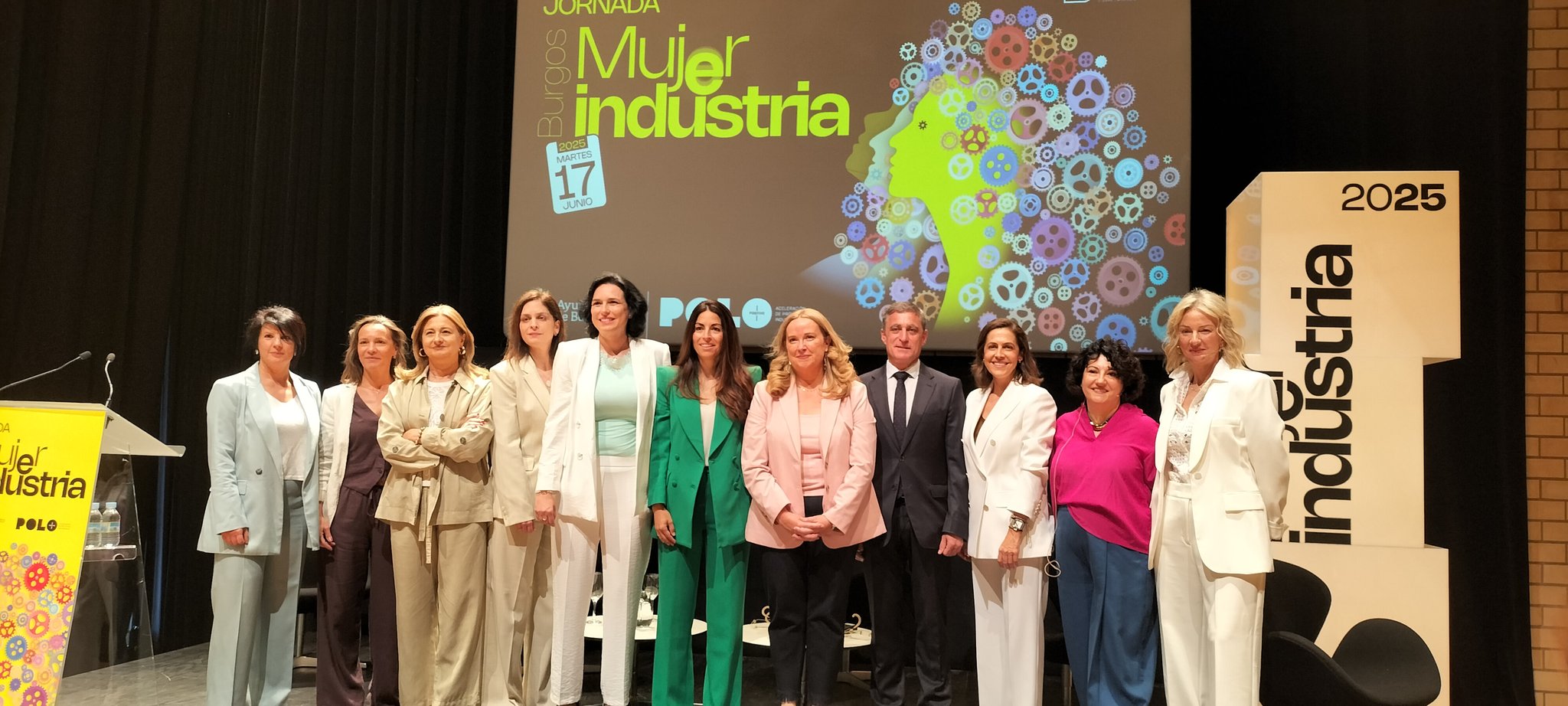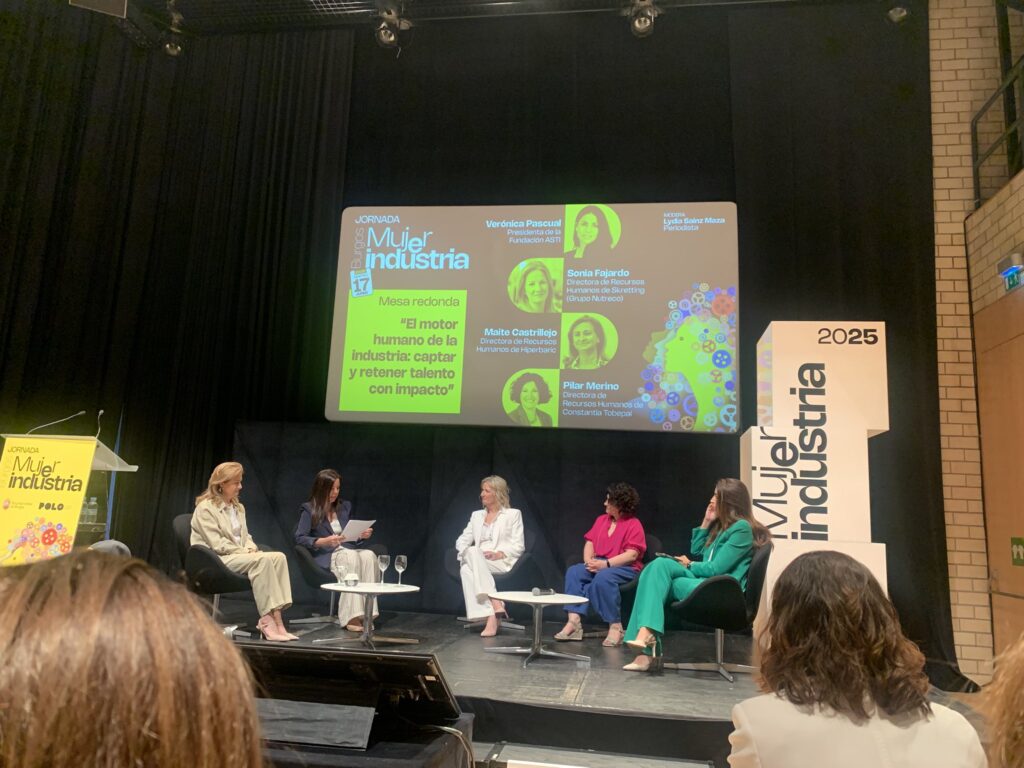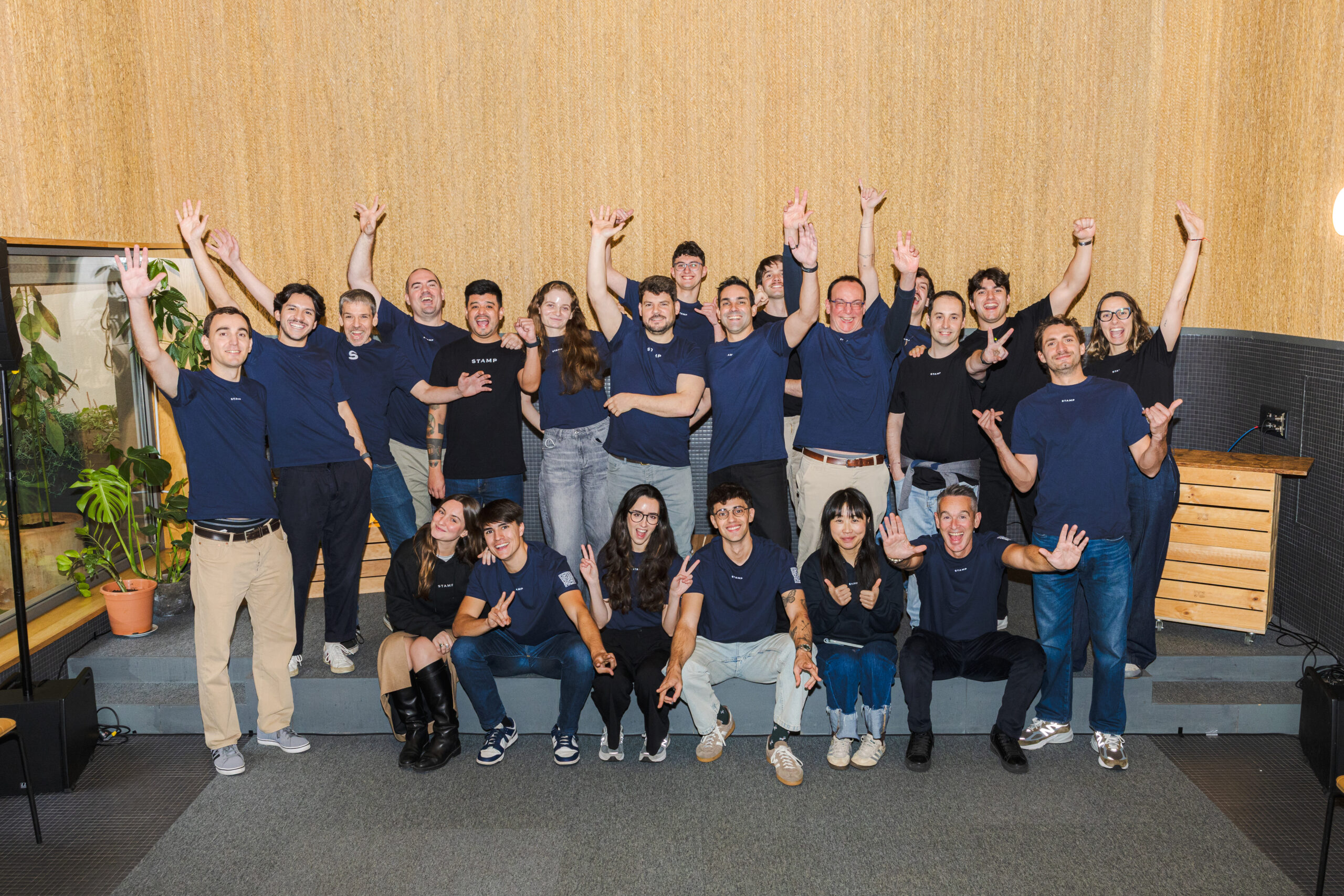Today, the third edition of “Mujer e Industria 2025” (Woman and Industry) took place at the Forum Evolución Conference Center in Burgos.
The event, organized by POLO Positivo, Spain’s first industrial project accelerator, the Burgos City Council, and its public entity ProBurgos, brought together “top female executives” from companies like Antolin, ABB, Adisseo, Skretting, Grupo Correa, and Hiperbaric. Burgos’ Mayor, Cristina Ayala, provided opening remarks.
The goal? To dive deep into three core issues shaping the future of the sector: Talent, technology, and leadership.
It comes at a time marked by shifting economies and urgent calls for sustainability.
The gathering attempted to position itself as a timely space to rethink structural challenges in the industry through a lens of equality, innovation, and long-term vision, according to a statement shared with Novobrief.
Among the speakers in attendance were Verónica Pascual (Fundación ASTI), Sonia Fajardo (Skretting), Maite Castrillejo (Hiperbaric), and Pilar Merino (Constantia Tobepal), who led a round table discussion on: “The Human Engine of Industry: Attracting and Retaining Impactful Talent.”
“This third edition not only brings together some of the most influential female executives in the sector,” noted Javier Cuasante, head of Business Dynamism at Fundación Caja de Burgos, during the June 4 press launch, “but also puts on the table the key themes that will shape the industry’s future: talent, technology, and leadership.”
Then again, aren’t these “key themes” the same ones we’ve seen, with slightly updated labels, being repeated at conferences for decades?
So what makes this time different? Maybe the answer is that the people leading the discussion are women shaping it from the inside. That is the promise, at least.
According to the European Commission, women hold just 22% of jobs in high-tech sectors across the EU. In Spain, female enrollment in STEM programs continues to stall.
But this isn’t just a numbers issue. It’s about the kind of society, and economy, we’re choosing to build. One that normalizes female absence in strategic fields, or one that redefines competitiveness through inclusion?
In Burgos, the provincial capital of Spain’s autonomous Castile and León community that is home to around 176,551 residents, initiatives are popping up to encourage female leadership in the industrial sector.
For instance, the emergence of LideraMdo, a network connecting female industrial leaders in Burgos, aims to be more than a networking platform. It’s a structure for surfacing talent, creating alliances, and sharing know-how amongst women who were working in isolation.
But is it working? It could be. In April, EuropaPress reported that greater Burgos is the province with the highest rates of women in leadership positions in industry in Spain. At 35%, it is still far from reaching gender parity, but still exceeds both national and European median rates.
Some of the other sessions of note at Mujer e Industria 2025 include:
- “Purpose-Driven Technology: Innovation for a Sustainable and Connected Industry.” Featuring Noelia Témez (ABB), Verónica Pinto Pascual (Edscha), Angélica Medina (Adisseo España), and Lorena Gil (Antolin).
- “Industry with Vision: Present and Future” featuring Cristina Blanco, CEO of Antolin, and Bibiana Nicolás-Correa, Chair of Grupo Correa’s Board of Directors.
The event wrapped up on June 17 with Rafael Barbero, General Director of Fundación Caja de Burgos, closing out the event, while Mabel Díaz, Head of Communications and Marketing at Benteler Ibérica Holding S.L.U., had been moderating throughout the day.








